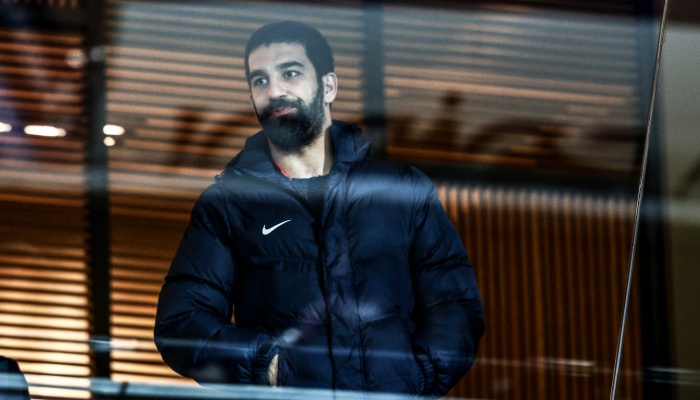In a scandal that laid bare how Turkey’s elite football circles can easily misplace trust and use unsafe transactions for short-term gain, a bank executive is facing 226 years in prison for orchestrating a fraudulent multi-million dollar investment scheme that ensnared some of the country’s most prominent football stars.
The investigation into the allegations, which was launched by the İstanbul Chief Public Prosecutor’s Office in April following a complaint from the victims, initially didn’t garner the media attention it deserved, and information regarding it was notably scarce and controlled.
According to a report by the Banking Regulation and Supervision Agency (BDDK) on the investigation, Seçil Erzan, the former branch manager at Denizbank Levent, collected around 43 million US dollars and 15 million Turkish lira from 29 people.
After the investigation led to an indictment in November, Erzan and six other suspects were charged with “qualified fraud” and “forgery.”
Erzan stands at the heart of this controversy involving what has been dubbed the “Fatih Terim Fund.”
Fatih Terim, an iconic figure in Turkish football, is associated with the scandal as Erzan lured investors with promises of astronomically high returns, as much as 40 percent a month, using Terim’s credentials to secure the trust of its footballer victims, who respected and trusted the legendary coach with a stellar career that includes rare achievements in European cups for Turkey’s Galatasaray football club.
The alleged victims, including former football stars such as Arda Turan and Selçuk İnan, were reportedly provided with nothing more substantial than handwritten notes or simple papers as proof of their investments, a stark departure from standard banking practice.
Despite Terim’s strong denials of involvement, his association with Erzan, who managed his financial dealings, remains a point of intrigue and speculation.
Critics point to the necessity of investigating the involvement of Turkey’s most famous football coach and the higher echelons of Denizbank.
Some criticize the oversight mechanisms at Denizbank and whether signs of Erzan’s alleged activities were overlooked or ignored while speculating on the potential involvement of other high-ranking bank officials, suggesting that Erzan might not have acted alone.
Erzan’s close relationship with Terim, an important figure in Turkish football, is particularly noteworthy. She reportedly became engaged thanks to an introduction made by Terim and had famous footballers frequently visiting her office at the bank.
The victims allege that Erzan convinced them that they were investing in a fund associated with Terim, Denizbank CEO Hakan Ateş and deputy CEO Mehmet Aydoğdu. However, two prominent figures notably absent from the case are Terim and Ateş.
Despite the scandal being named after him and the involvement of his family members and close associates, Terim is not part of a trial that started Nov. 20.
Furthermore, neither Terim nor Denizbank CEO Ateş is mentioned in the indictment, despite their names being used to facilitate the alleged fraud.
While Erzan admitted to knowing Terim and managing his financial transactions, she denied any wrongdoing in their dealings. Terim’s reaction to the scandal and his statements suggest he had prior knowledge of the unfolding events. Yet, there seems to be a lack of in-depth investigation into his and Ateş’s roles, despite numerous references to their involvement in the victim’s statements.
During the trial, Erzan defended herself, saying, “I was the captain of a sinking ship. If I were a fraudster, the ship would sink and I would escape.” She attributed the losses to investors’ greed for high returns and claimed that they had put her in this predicament.
As some Turkish pundits have noted, this scandal is not just about the alleged greed and naïveté of footballers and businesspeople handing over their money for an exorbitantly high return; it’s about the oversight and accountability of the banking system itself.
According to a report by the Kronos news website, evidence found during a police search of Erzan’s home, including Excel spreadsheets, bank receipts and transfer records, indicates Denizbank’s direct involvement in the scandal. Tables showing debtors and creditors were reportedly prepared not by Erzan but by high-ranking officials at Denizbank.
Erzan’s statements in her defense and during the investigation suggest a concerted effort to distance the bank from the scandal. According to her account, she was coerced into claiming that the fraudulent activities were conducted outside the bank’s operations.
The BDDK decided not to file a complaint against the bank, which effectively removed Denizbank from the scope of the investigation.
Prominent journalist Fatih Altaylı reported that after the scandal erupted, former footballers Emre Belözoğlu and Turan sought help from President Recep Tayyip Erdoğan. According to Altaylı, this led to a call from the presidency to the bank’s management requesting that these players should be compensated for their losses.
The bank reportedly responded by stating that if there were documents and corresponding bank records of the transactions, they would make the payments immediately. However, in the absence of such documents and records in their system, they could not make any payments. The bank suggested that legal action should be taken, and if the players win the case, the bank would willingly pay. The bank expressed its inability to make payments without proper documentation, citing risks of committing misappropriation of funds or embezzlement.
The involvement of President Erdoğan, as suggested by Altaylı, also points to the dysfunctional nature of Turkey’s judicial system as footballers tried to use their personal acquaintance with Erdoğan to resolve the matter instead of going to court.

